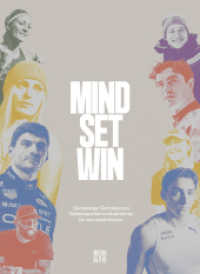基本説明
This book, which was originally published as a Special Issue of Journal of Language & Politics (4:1, 2005), takes the war in Iraq as an exemplary case through which to demonstrate the changing nature of contemporary power. Bringing together different strands of discourse analysis with social, historical and, to an extent, political analysis, all contributions seek to illustrate the ways in which a variety of public genres, from political speeches to computer games and from educational material to newspaper reports, produce influential knowledge about the war and shape the ethical and political premises upon which the legitimacy of this war and a ‘vision’ of the emergent world order rests.
Full Description
This book, which was originally published as a Special Issue of Journal of Language & Politics 4:1 (2005), takes the war in Iraq as an exemplary case through which to demonstrate the changing nature of contemporary power. The book convincingly argues that the effective study of international politics depends today upon our understanding of the interplay between hard (military, economic) and soft (symbolic) power. One might say, between the politics of territory, guns or money and the language of narrating the world in coherent and persuasive stories. Bringing together different strands of discourse analysis with social, historical and, to an extent, political analysis, all contributions seek to illustrate the ways in which a variety of public genres, from political speeches to computer games and from educational material to newspaper reports, produce influential knowledge about the war and shape the ethical and political premises upon which the legitimacy of this war and a 'vision' of the emergent world order rests.
Contents
1. About the Authors; 2. Introduction: The soft power of war: Legitimacy and community in Iraq war discourses (by Chouliaraki, Lilie); 3. The language of neofeudal corporatism and the war on Iraq (by Graham, Philip); 4. Blair's contribution to elaborating a new 'doctrine of international community' (by Fairclough, Norman); 5. War rhetoric of a little ally: Political implicatures and Aznar's legitimatization of the war in Iraq (by Dijk, Teun A. van); 6. The Iraq war as curricular knowledge: From the political to the pedagogic divide (by Mitsikopoulou, Bessie); 7. Computer games as political discourse: The case of Black Hawk Down (by Machin, David); 8. Spectacular ethics: On the television footage of the Iraq war (by Chouliaraki, Lilie); 9. Index






